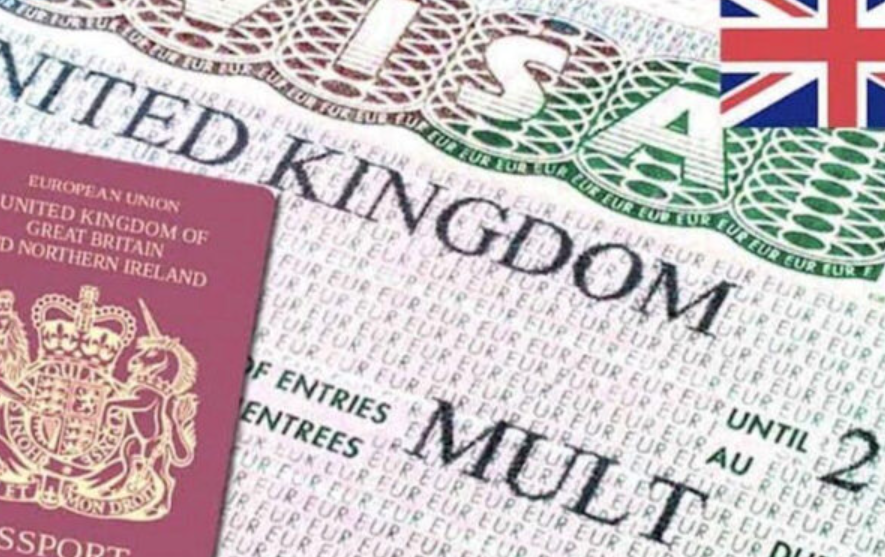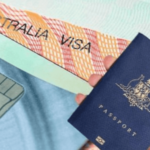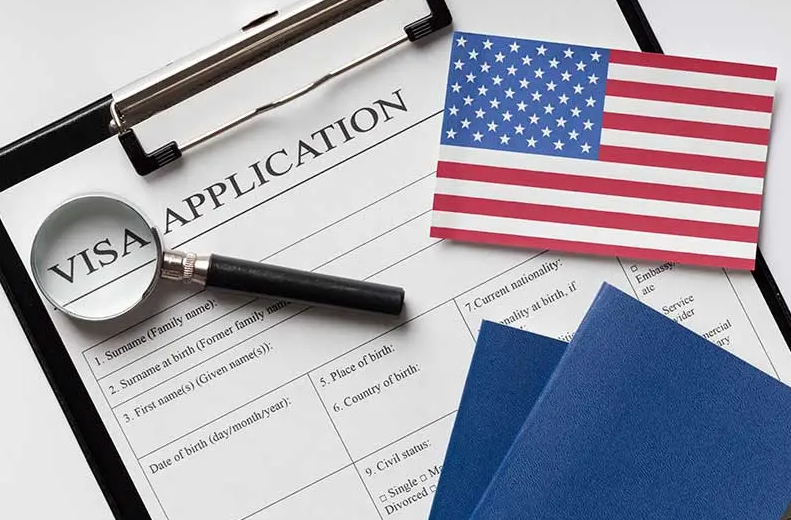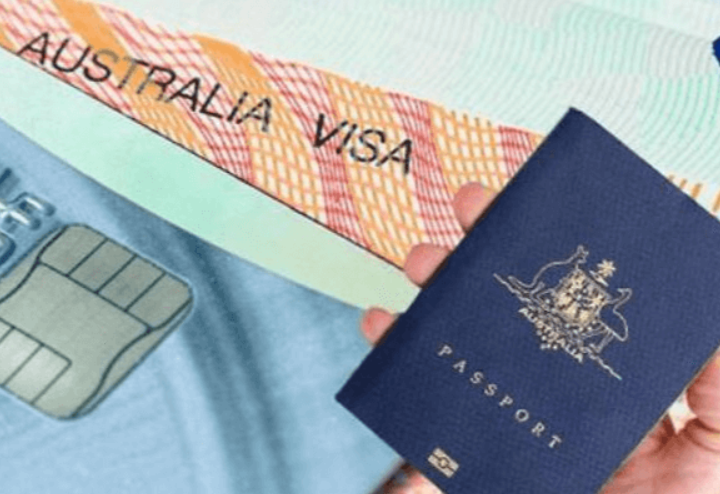You might be surprised to learn that a growing number of UK companies offering visa sponsorship opportunities are actively seeking individuals passionate about charity work. While the traditional image of visa sponsorship might conjure up images of high-powered corporate roles, the landscape is shifting. Companies are increasingly recognizing the value of social impact and are investing in talent that aligns with their corporate social responsibility (CSR) goals.
For many, the prospect of securing a UK work visa seems daunting, a labyrinth of regulations and requirements. Traditionally, the image of sponsored employment is often associated with high-powered corporate roles, lucrative tech positions, or specialized medical fields. However, a quiet revolution is underway. A growing number of forward-thinking UK companies offering visa sponsorship opportunities are recognizing the intrinsic value of individuals driven by a deep commitment to charity work.
This article dives deep into this exciting trend, exploring how you can leverage your passion for charity work to secure a sponsored visa in the UK. We’ll unpack the types of roles available, the companies leading the charge, and crucial tips for navigating the application process.
The Visa Sponsorship Process for Traveling to the UK
Embarking on a career in the UK, particularly within the impactful realm of charity work, requires a thorough understanding of the visa sponsorship process. While the prospect might seem daunting, breaking it down into manageable steps clarifies the pathway to your professional aspirations. Here’s an extensive look at the key stages involved:
-
Securing a Certificate of Sponsorship (CoS):
The foundation of your UK work visa application lies in securing a Certificate of Sponsorship (CoS). This is not a physical certificate but a digital record issued by a UK employer who holds a valid sponsor license. This license, granted by the Home Office, authorizes them to employ skilled workers from outside the UK.
- Employer’s Responsibility: The employer initiates the CoS application, assigning it to a specific job role and applicant (you). This document outlines the job details, salary, and your personal information.
- Validity and Restrictions: The CoS is valid for a limited period and is linked to the specific job and employer. Changing jobs or employers without securing a new CoS can jeopardize your visa status.
- Understanding the “Resident Labour Market Test” (If Applicable): In some cases, employers might need to demonstrate that they’ve made genuine efforts to recruit within the UK before offering the role to an overseas candidate. While less common than in the past, understanding this potential requirement is crucial. The employer must show that no suitable settled worker is available for the role.
-
Meeting the Skilled Worker Visa Eligibility Requirements:
The Skilled Worker visa, the most common route for sponsored employment, has specific eligibility requirements. These include:
- Job Offer from a Licensed Sponsor: As discussed, a CoS is essential.
- Meeting the Salary Threshold: The UK government sets minimum salary thresholds based on the job’s occupation code (SOC code). These thresholds vary, and it’s crucial to confirm the applicable rate for your specific role. Certain charity roles may qualify for lower salary thresholds, if they are on the shortage occupation list, or if the applicant is considered a “new entrant”.
- English Language Proficiency: You must demonstrate your English language proficiency through a recognized test (e.g., IELTS, PTE Academic) or by having a degree taught in English.
- Financial Requirements: You may need to prove that you have sufficient funds to support yourself during your initial stay in the UK. This requirement is often waived if your employer certifies maintenance.
- Genuine Job Requirement: The Home Office assesses the genuineness of the job offer to prevent abuse of the visa system.
-
Completing the Online Visa Application:
Once you have the CoS and meet the eligibility requirements, you’ll complete the online visa application. This involves:
- Providing Personal and Employment Details: You’ll need to provide accurate information about your personal background, employment history, and the job offer.
- Uploading Supporting Documents: You’ll be required to upload digital copies of supporting documents, including your passport, CoS, English language test results, and any other required documentation.
- Paying the Application Fee and Immigration Health Surcharge (IHS): You’ll need to pay the visa application fee and the IHS, which grants you access to the National Health Service (NHS).
-
Attending a Biometric Appointment:
After submitting your online application, you’ll need to schedule and attend a biometric appointment at a visa application center. This involves:
- Providing Fingerprints and Photograph: Your fingerprints and photograph will be taken for biometric verification.
- Submitting Supporting Documents (If required): In some cases, you may need to submit original supporting documents at the appointment.
-
Visa Decision and Issuance:
The Home Office will review your application and supporting documents. The processing time can vary, so it’s essential to apply well in advance of your intended travel date.
- Visa Approval: If your application is approved, you’ll receive a visa vignette (sticker) in your passport, which allows you to enter the UK.
- Visa Refusal: If your application is refused, you’ll receive a letter explaining the reasons for the refusal. You may have the option to appeal the decision or reapply.
-
Arriving in the UK and Collecting Your Biometric Residence Permit (BRP):
Upon arrival in the UK, you’ll need to collect your Biometric Residence Permit (BRP) from a designated post office. The BRP serves as proof of your immigration status and contains your biometric information.
- BRP Collection: You’ll need to collect your BRP within a specified timeframe after arriving in the UK.
- Ongoing Compliance: During your stay in the UK, you must comply with the terms of your visa, including working only for your sponsoring employer and adhering to the visa’s validity period.
-
Potential Visa Extensions and Indefinite Leave to Remain (ILR):
If you wish to remain in the UK beyond the initial visa period, you can apply for a visa extension.
- Visa Extension: You must apply for an extension before your current visa expires.
- Indefinite Leave to Remain (ILR): After meeting the required residency period (typically five years), you can apply for ILR, which grants you permanent residency in the UK.
Navigating the UK visa sponsorship process requires meticulous attention to detail and adherence to the Home Office’s guidelines. By understanding each step and ensuring you meet the eligibility requirements, you can increase your chances of successfully securing a visa and embarking on your career in the UK’s vibrant charity sector.
Why Are UK Companies Offering Visa Sponsorship Opportunities for Charity Work?
Going deeper into the motivations behind UK companies offering visa sponsorship opportunities for charity work reveals a complex interplay of ethical considerations, strategic business decisions, and evolving societal expectations. It’s not simply about altruism; it’s about building a sustainable and impactful future. Here’s a more comprehensive breakdown:
-
The Rise of Purpose-Driven Business and Enhanced CSR:
- Beyond Profit Margins: Modern businesses are increasingly recognizing that their responsibilities extend beyond generating profits. Consumers, investors, and employees are demanding greater transparency and accountability regarding a company’s social and environmental impact.
- Authentic CSR Initiatives: Sponsoring individuals to work on meaningful charity projects is seen as a genuine and impactful way to demonstrate corporate social responsibility. It’s not about token gestures; it’s about investing in initiatives that create lasting positive change.
- Building Brand Reputation and Trust: In a world where trust is paramount, companies that actively contribute to social good are more likely to build strong brand reputations and cultivate loyal customer bases. Sponsoring talented individuals to work on charitable causes enhances a company’s ethical image.
-
Addressing Skill Gaps and Fostering Innovation:
- Specialized Skillsets in the Non-Profit Sector: The charity sector often requires unique skillsets, including community engagement, fundraising, project management, and advocacy. These skills are not always readily available within the UK workforce.
- Bringing in Diverse Perspectives: International talent brings fresh perspectives, innovative approaches, and valuable experience to the charity sector. This diversity of thought can lead to more effective and impactful solutions to social problems.
- Knowledge Transfer and Capacity Building: Sponsoring individuals with specialized skills allows UK charities and non-profit organizations to build their capacity and enhance their effectiveness. This knowledge transfer can have a lasting impact on the sector.
-
Responding to Talent Shortages and Filling Critical Roles:
- Addressing Sector-Specific Skill Gaps: Certain areas within the charity sector, such as fundraising, data analysis, and digital marketing, face significant talent shortages.
- Accessing a Global Talent Pool: Sponsoring visas allows UK companies and charities to access a wider pool of qualified candidates from around the world. This ensures that they can fill critical roles with the best possible talent.
- Ensuring Long-Term Sustainability: By investing in talent, companies and charities are ensuring the long-term sustainability of their operations and their ability to address pressing social issues.
-
Aligning with Ethical Values and Employee Engagement:
- Attracting and Retaining Top Talent: Employees, particularly younger generations, are increasingly seeking employers whose values align with their own. Sponsoring charitable initiatives demonstrates a commitment to ethical practices and social responsibility, which can attract and retain top talent.
- Boosting Employee Morale and Engagement: Employees who are involved in or support their company’s charitable initiatives are more likely to be engaged and motivated. This can lead to increased productivity and a more positive work environment.
- Creating a Culture of Social Impact: Companies that prioritize social impact are creating a culture where employees feel empowered to make a difference. This can lead to a more fulfilling and meaningful work experience.
-
Fulfilling Corporate Social Responsibility Obligations:
- Meeting Stakeholder Expectations: Many companies have formal CSR policies and commitments to meet the expectations of their stakeholders, including customers, investors, and employees.
- Contributing to Sustainable Development Goals (SDGs): Sponsoring charitable initiatives can help companies contribute to the United Nations’ Sustainable Development Goals, which provide a framework for addressing global challenges.
- Building Partnerships and Collaborations: Sponsoring visas can facilitate partnerships and collaborations between companies and charities, leading to more impactful and sustainable projects.
-
Enhancing Global Connections and Understanding:
- Promoting Cultural Exchange: Employing individuals from diverse backgrounds fosters cultural exchange and promotes greater understanding between different communities.
- Building International Networks: Sponsoring visas can help companies build international networks and expand their global reach.
- Contributing to a More Inclusive and Equitable Society: By supporting charitable initiatives that address social inequalities, companies are contributing to a more inclusive and equitable society.
The decision to offer visa sponsorship for charity work is a strategic and ethical one. It’s about building a better future for both the company and the community.
Essential Requirements for Landing Visa Sponsorship Opportunities for Charity Work in the UK
Securing visa sponsorship for charity work in the UK is a competitive process that demands a strategic approach and a strong understanding of the essential requirements. Beyond just passion, you’ll need to demonstrate a blend of relevant skills, cultural awareness, and a clear understanding of the UK visa system. Here’s a detailed breakdown:
-
Demonstrable and Relevant Experience in the Charity Sector:
- Quantifiable Impact: Simply stating “passion for charity” isn’t enough. You must showcase tangible results. Quantify your achievements with data: “Increased fundraising revenue by 20%,” “Managed a volunteer team of 50+,” or “Successfully implemented a community outreach program reaching 1000+ beneficiaries.”
- Sector-Specific Expertise: Tailor your experience to the specific area of charity work the company is involved in. If they focus on environmental conservation, highlight your experience in that field. If their work is in education, showcase relevant educational projects.
- Volunteer Experience as Professional Development: Don’t underestimate the value of volunteer experience. Treat it as professional development, emphasizing the skills gained and the impact achieved.
- International Experience: If you have experience working in international development or with international charities, highlight this. It demonstrates adaptability and a global perspective.
-
Specialized Skills that Align with the Role and Organization’s Mission:
- Beyond General Skills: Charity work requires specific skills beyond general project management or communication. These can include grant writing, impact measurement, community mobilization, advocacy, and policy analysis.
- Digital Literacy and Technological Proficiency: In today’s digital age, proficiency in digital fundraising, social media marketing, and data analysis is crucial. Highlight your technical skills.
- Language Proficiency: While English is essential, proficiency in other languages relevant to the organization’s work can be a significant advantage.
- Cultural Sensitivity and Adaptability: Charity work often involves working with diverse communities. Demonstrate your ability to adapt to different cultural contexts and build rapport with people from various backgrounds.
-
A Strong Understanding of the UK Charity Sector and its Regulations:
- Knowledge of UK Charity Law: Familiarize yourself with the regulations governing charities in the UK, including the role of the Charity Commission.
- Understanding of Funding Landscape: Research the funding sources available to UK charities, including government grants, trusts, foundations, and individual donations.
- Awareness of Current Social Issues: Demonstrate your awareness of the key social issues facing the UK and the work being done by charities to address them.
- Networking with UK-Based Professionals: If possible, network with professionals working in the UK charity sector. This will give you valuable insights into the industry and potential opportunities.
-
A Well-Crafted CV and Cover Letter Tailored to Each Application:
- Quantifiable Achievements: Don’t just list your responsibilities; highlight your achievements and their impact.
- Keywords and Action Verbs: Use keywords relevant to the job description and action verbs to showcase your skills and experience.
- Compelling Cover Letter: Your cover letter should tell a story, demonstrating your passion for the organization’s mission and your suitability for the role.
- Show your understanding of the company’s CSR: Demonstrate that you have researched the company, and that you understand their commitment to charitable works.
-
Meeting the Skilled Worker Visa Requirements:
- Salary Threshold: Ensure your salary meets the minimum threshold for the Skilled Worker visa, considering the specific SOC code for your role.
- English Language Proficiency: Prepare for and pass a recognized English language test (e.g., IELTS, PTE Academic).
- Financial Requirements: Be prepared to demonstrate that you have sufficient funds to support yourself during your initial stay in the UK.
- Clean Criminal Record: A clean criminal record is essential for visa approval.
-
Strong References and Recommendations:
- Professional References: Provide references from individuals who can attest to your skills, experience, and character.
- Letters of Recommendation: Request letters of recommendation that highlight your specific contributions to charity work.
- Online Presence: Ensure your online presence (LinkedIn, etc.) reflects your professional experience and commitment to social impact.
-
Demonstrating a Genuine Commitment to the Organization’s Mission:
- Research the Organization: Thoroughly research the organization’s mission, values, and work.
- Show Passion and Enthusiasm: Let your passion for the organization’s mission shine through in your application and interview.
- Articulate Your Long-Term Goals: Demonstrate how your career goals align with the organization’s mission and your commitment to making a lasting impact.
- Ask Insightful Questions: During the interview, ask thoughtful questions that demonstrate your genuine interest in the organization’s work.
By focusing on these essential requirements, you can significantly increase your chances of landing a visa sponsorship opportunity and embarking on a fulfilling career in the UK charity sector.
UK Companies Offering Visa Sponsorship Opportunities for Charity Work
It’s important to understand that “companies” in the traditional sense, that is, for profit businesses, that directly sponsor for “Charity work” is less common than charitable organizations themselves sponsoring workers. However, many large corporations do have very large and active Corporate social responsibility programs, that can create opportunities. Also, many charitable organizations do sponsor workers.
Here’s an expansion on some key areas and organizations where visa sponsorship opportunities related to charity work might arise in the UK:
-
Unilever:
Unilever, a global consumer goods giant, has a robust Sustainable Living Plan, with a strong focus on social impact. They actively engage in projects related to sanitation, hygiene, and sustainable livelihoods, often partnering with NGOs. They may sponsor skilled professionals for roles in their sustainability teams, community development initiatives, or partnerships management, particularly those with experience in international development or environmental science.
-
GlaxoSmithKline (GSK):
GSK, a pharmaceutical company, is committed to improving global health. Their CSR initiatives focus on access to medicines, health education, and strengthening healthcare systems in developing countries. They frequently collaborate with charities and NGOs, and may sponsor professionals with expertise in public health, epidemiology, or pharmaceutical development for roles related to their global health programs.
-
Vodafone Foundation:
The Vodafone Foundation, the charitable arm of Vodafone, focuses on using technology to improve lives. Their initiatives include disaster relief, mobile health, and education programs. They may sponsor professionals with expertise in technology for development, project management, or digital communications for roles related to their foundation’s projects.
-
Barclays:
Barclays has a strong community investment program, focusing on financial inclusion, education, and employability. They partner with charities to deliver programs that support vulnerable communities. They may sponsor professionals with experience in community development, education, or financial inclusion for roles in their CSR teams or related projects.
-
HSBC:
HSBC’s Future Skills program aims to equip young people with the skills they need for the future of work. They partner with charities to deliver education and employability programs. They may sponsor professionals with expertise in education, training, or youth development for roles related to their community investment programs.
-
Marks & Spencer (M&S):
M&S has a Plan A sustainability program, with a focus on ethical sourcing, reducing environmental impact, and supporting communities. They partner with charities to deliver projects related to sustainable agriculture, fair trade, and community development. They may sponsor professionals with expertise in sustainability, ethical sourcing, or community development for roles related to their Plan A initiatives.
-
Tesco:
Tesco is committed to reducing food waste and supporting local communities. Their community programs focus on food donation, healthy eating, and supporting vulnerable groups. They may sponsor professionals with expertise in food sustainability, community engagement, or logistics for roles related to their community programs.
-
National Grid:
National Grid focuses on environmental sustainability and community engagement. Their programs include supporting vulnerable customers, promoting STEM education, and investing in renewable energy. They may sponsor professionals with expertise in environmental science, engineering, or community engagement for roles related to their sustainability and community programs.
-
Aviva:
Aviva’s community fund supports local projects that address social issues. Their focus areas include financial inclusion, community resilience, and environmental sustainability. They may sponsor professionals with expertise in community development, financial inclusion, or environmental sustainability for roles related to their community fund.
-
BT Group:
BT Group, through its “Skills for Tomorrow” program, focuses on digital inclusion and helping people develop digital skills. They partner with charities to deliver programs that support vulnerable groups and promote digital literacy. They may sponsor professionals with expertise in digital skills training, community engagement, or technology for development for roles related to their digital inclusion programs.
It is very important to note, that while these companies engage heavily in charitable activities, direct “charity work” roles that automatically lead to sponsorships are rare. The sponsorships will be tied to the needed skillsets that these companies need to fulfill their CSR goals. Always look at each company’s career page, and filter for sponsorship availability.
When searching for relevant opportunities, it is very important to use very specific search terms, and to be very diligent in checking the requirements of each role.
Conclusion
The prospect of securing UK companies offering visa sponsorship opportunities for charity work is more attainable than you might think. By leveraging your passion, skills, and networking abilities, you can embark on a rewarding career that aligns with your values. Remember to focus on companies that prioritize CSR, and clearly demonstrate your commitment to making a positive impact.





